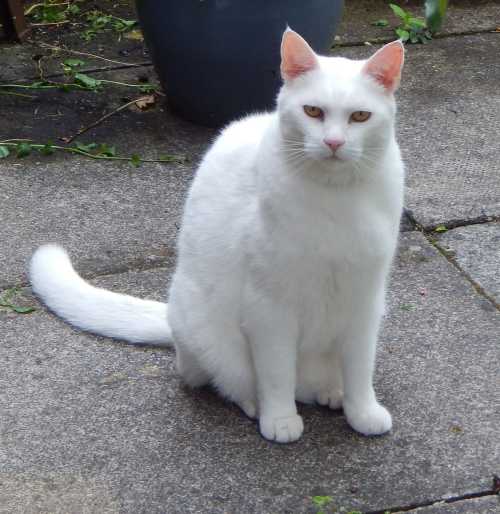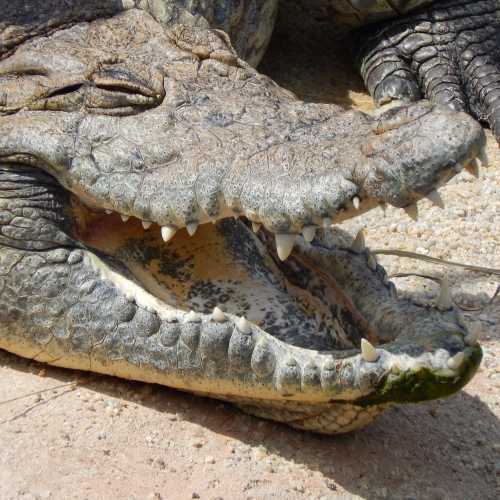Can Cats Taste Honey?
Honey is sweet, and scientific research suggests that cats cannot taste sweet things.
I'm aware that some owners are interested in the idea of feeding honey to their cat, with a variety of rationales:
- a treat,
- health reasons (they want their cat to benefit from the anti-bacterial and mineral properties in honey),
- applying to small wounds (i.e. will it matter if the cat licks some of it off?).
This leads to the interesting question of whether or not it's okay to give honey to cats and whether it tastes the same for our feline friends.
However, the short answer is:
For health reasons, it's probably not a good idea to give honey to cats, and given that they lack the gene that would enable them to taste sweet things, their gustatory experience of honey would be quite different from that of humans.
Now for further explanation....
Is it safe to give honey to cats and can cats taste honey anyway?
 It's tempting to think cats might enjoy the sweet taste of honey as much as we do, but can cats taste honey?
It's tempting to think cats might enjoy the sweet taste of honey as much as we do, but can cats taste honey?Why honey is not a healthy treat for cats
It's not really advisable to give honey to your cat. Cats lack glucokinase in the liver which is a very important enzyme for controlling levels of carbohydrate sugars in the body.
This matters, because carbohydrate has an effect on blood sugar levels.
Giving
an increased sugar intake to cats (who lack glucokinase in the liver) could lead to
significantly raised blood sugar levels, which, just like in human diabetics,
may lead to significant long-term health problems for the cat.
- Li X, Li W, Wang H, et al. Cats lack a sweet taste receptor. J Nutr. 2006;136(7 Suppl):1932S–1934S. doi:10.1093/jn/136.7.1932S
- Peihua Jiang, Jesusa Josue, Xia Li, Dieter Glaser, Weihua Li, Joseph G. Brand, Robert F. Margolskee, Danielle R. Reed, Gary K. Beauchamp; Major taste loss in carnivorous mammals; Proceedings of the National Academy of Sciences Mar 2012, 201118360; DOI: 10.1073/pnas.1118360109
- Beauchamp GK, Maller O, Rogers JG. Flavor preferences in cats (Felis catus and Panthera sp.) J Comp Physiol Psychol. 1977;91:1118–27.
- https://www.diabetes.co.uk/info/
CatsWithDiabetes.html
Diabetes UK comment:
"When a diabetic cat ingests glucose and can’t process it properly, it leads to the build up of sugars in the blood stream. Eventually, the blood sugar gets so high that sugar begins to be spilled in the cat’s urine".
Basically, cats are true carnivores, and do not naturally have the physiology for eating human food products like honey, although it's always tempting to want to share treats with them. In short, personally I would not give honey to my cat.
In addition, like any treat, when too many calories are consumed, it can cause unhealthy weight gain. If you are concerned about promoting pet health, there are of course plenty of other treats available that might be beneficial for your cat.
With regard to wound care, I would advise taking your cat to the vet to have it checked.
I did read a very distressing story about an attempt to treat what turned out to be a cat's serious cancer wound with manuka honey. This is one of the reasons why it is better to go to a vet, who can then identify any underlying problems, and treat the cat to help it feel more comfortable.
If you wish to use honey to treat your cat's wound, you can discuss how best to do this with your vet, and whether or not it's appropriate, especially given the information above.
Cats can't taste sweetness, but can they taste honey?
Scientific research suggests that cats (including wild, as well as domestic cats) lack the amino acids that make up an important gene for tasting sweet foods: the Tas1r2 gene. Experiments confirm that in contrast to some other animals, cats show no preference for food or liquids that have sugar added to them.
But what if your cat appears to like the taste of honey, or other sweet treats? Scientists have an answer for that too: it's probably because they are attracted to something else within the food, such as fats, protein, or another component.
Honey contains a combination of sweet-taste giving sugars, but that is not all that honey contains. The unique combinations of amino acids and other micro-ingredients all help to contribute to the aromatic qualities and flavor of honey.
I'm not currently aware of any research investigating whether cats are able to detect these aromas, but I would not be in the least bit surprised if cats can indeed smell them. There is a tiny amount of protein in honey too.
I'd be happy to receive research concerning this subject. However, if your cat likes honey, it wouldn't surprise me if it was due to the aromatic ingredients that are attractive to the cat, rather than the sweetness.
In any event, whatever cats can or cannot taste, the research seems to indicate that if cats can taste honey in any way, they are unlikely to experience the sweetness, and hence, honey will taste different for cats than for humans. Nevertheless, feeding honey to cats is not advisable.
References
If you found this page helpful or interesting, I'd really be grateful if you would share it with others - if not this page, perhaps another, such as Gardening For Bees.
Thank you so much :) .

